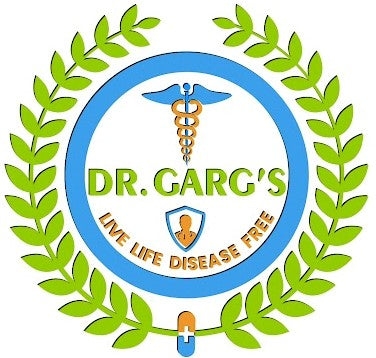Piles
An Overview of Piles (Hemorrhoids) Treatment: Causes, Symptoms, Diagnosis, Ayurvedic and Homeopathic Treatment

Introduction:
Piles, also known as hemorrhoids, are swollen blood vessels located in the rectum or anus. They can cause discomfort, pain, and other unpleasant symptoms. This article provides an overview of piles treatment, including the causes, symptoms, and diagnosis of this condition. Additionally, we will explore alternative approaches such as homeopathic and Ayurvedic treatments.
Causes of Piles (Hemorrhoids):
Piles can occur due to various factors that put increased pressure on the blood vessels in the rectal and anal area. Some common causes and risk factors include:
1. Straining during bowel movements:
Chronic constipation and excessive straining during bowel movements can lead to the development of piles.
2. Chronic diarrhea:
Frequent episodes of diarrhea can irritate the rectal area and contribute to the formation of piles.
3. Pregnancy:
The pressure exerted on the abdomen during pregnancy can lead to the development of piles.
4. Obesity:
Being overweight or obese increases the pressure on the rectal area, making piles more likely to occur.
5. Sedentary lifestyle:
Lack of physical activity and prolonged sitting can contribute to the development of piles.
6. Age:
The risk of developing piles increases with age due to weakened connective tissues and decreased elasticity of blood vessels.

Symptoms of Piles (Hemorrhoids):
Piles can vary in severity, and symptoms may differ among individuals. Common symptoms of piles include:
1. Rectal bleeding:
Bright red blood may be noticed on toilet paper or in the toilet bowl after a bowel movement.
2. Itching and irritation:
The area around the anus may be itchy and irritated.
3. Pain or discomfort:
Piles can cause pain, especially during bowel movements or when sitting for prolonged periods.
4. Swelling and lumps:
Swollen blood vessels may form around the anus, resulting in small lumps or bulges.
5. Mucus discharge:
Piles can lead to the secretion of mucus from the anus.
6. A feeling of incomplete evacuation:
Individuals may experience a sensation of not having fully emptied the bowels after a bowel movement.

Diagnosis of Piles (Hemorrhoids):
Diagnosing piles involves a medical evaluation of symptoms and a physical examination. The following methods are commonly used:
1. Medical history:
The healthcare provider will discuss your symptoms, medical history, and any relevant risk factors.
2. Physical examination:
The healthcare provider will visually inspect the anus and rectal area to look for signs of piles, such as swelling, lumps, or external hemorrhoids.
3. Digital rectal examination (DRE):
The healthcare provider may insert a lubricated, gloved finger into the rectum to check for internal hemorrhoids or other abnormalities.
4. Proctoscopy or anoscopy:
These procedures involve using a specialized tool to visualize the inside of the rectum and anus to examine the location, size, and severity of the piles.
5. Homeopathic and Ayurvedic Treatments for Piles (Hemorrhoids):
Alternative approaches such as homeopathy and Ayurveda can offer potential relief from the symptoms of piles. However, it is important to Dr. Garg’s Clinic before pursuing these treatments.
Homeopathic Treatment:
Homeopathy aims to stimulate the body's self-healing abilities by using highly diluted substances. Remedies are selected based on the individual's specific symptoms and overall health.
Some commonly used homeopathic remedies for piles include:
1. Aesculus hippocastanum:
This remedy is often indicated for individuals experiencing hemorrhoids accompanied by a dull, aching pain in the back and a feeling of fullness in the rectum.
2. Nux vomica:
Nux vomica is commonly used for piles associated with sedentary lifestyles, excessive straining during bowel movements, and a constant urge to pass stools.
3. Hamamelis virginiana:
This remedy may be recommended for individuals with bleeding piles, especially when the blood is dark and accompanied by a bruised or sore sensation in the rectum.
It is important to consult Dr. Garg, who is a qualified practitioner for a personalized treatment plan based on your specific symptoms.
Ayurvedic Treatment:
Ayurveda, an ancient Indian system of medicine, focuses on restoring balance and promoting overall well-being. Ayurvedic treatments for piles aim to reduce inflammation, promote digestion, and alleviate symptoms.
Here are some common approaches used in Ayurveda for piles treatment:
1. Herbal Medicines:
Ayurvedic practitioners may recommend herbs such as Triphala, Haritaki, and Arshoghni Vati to help alleviate constipation, reduce inflammation, and improve bowel movements.
2. Dietary and Lifestyle Modifications:
Ayurvedic treatments for piles often involve dietary adjustments to promote regular bowel movements and prevent constipation. Additionally, lifestyle recommendations may include regular exercise, maintaining proper hydration, and avoiding excessive straining during bowel movements.
3. Sitz Baths:
Sitz baths involve sitting in warm water to relieve pain, itching, and inflammation associated with piles.
It is essential to consult Dr. Garg, who is an experienced practitioner who can assess your specific condition and provide personalized treatment recommendations based on the principles of Ayurveda.

Conclusion:
Piles treatment typically involves a combination of lifestyle modifications, dietary changes, and medical interventions. Alternative approaches like homeopathy and Ayurveda can be explored as complementary therapies, but it is crucial to consult Dr. Garg’s Clinic. We have a team of qualified doctors and medical professionals who are committed to helping you in your journey to better health. Early diagnosis, appropriate treatment, and preventive measures can help manage the symptoms and improve the quality of life for individuals with piles.
